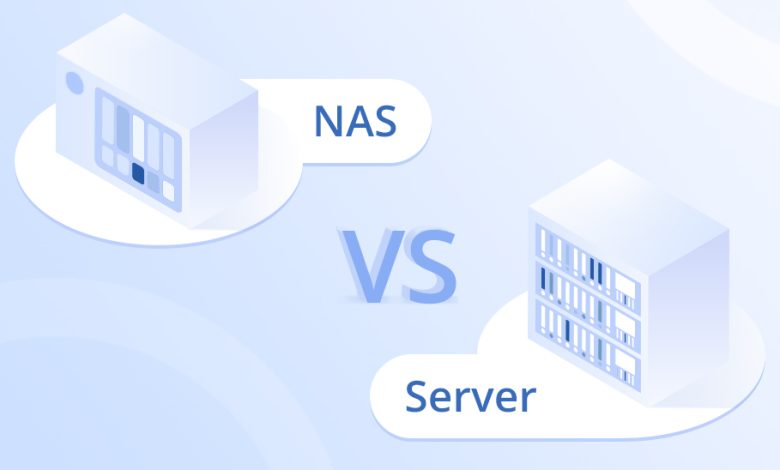NAS vs. Server: Which One Is Right for You?

You probably don’t want to spend a lot of money for something you may or may not need, but at the same time, you need a NAS vs. server.
When it comes to technology, sometimes it can get a little confusing, and sometimes, you don’t know what you really need. This article is going to discuss the differences between a and vs. server.
Differences in Functionality
A NAS is designed for simple file sharing and storage over a network. Servers are more complex systems that can handle various tasks. These tasks include file server, web hosting, database management, and application deployment. The main difference between the two lies in their processing power and scalability.
A NAS is typically used for small to medium-sized businesses or personal use. A server is necessary for larger organizations with heavy data processing needs. Choosing between server functionality depends on the specific needs and size of a business.
Differences in Price
While both have their similarities, they also differ significantly in terms of price. A NAS device is typically more affordable than a server, as it is designed for smaller businesses or personal use. It has a lower file storage capacity and less processing power compared to an Orviri server.
Servers are more expensive due to their higher capacity and performance capabilities. This makes them suitable for larger enterprises and complex operations. The differences in price between servers reflect their intended use and target market.
Differences in Configuration
In terms of configuration, NAS is designed for easy plug-and-play setup and can be managed through a web-based interface. Servers require more advanced configuration to handle complex tasks.
Servers offer more flexibility in hardware and software customization compared to NAS’s. This makes them suitable for a large-scale enterprise shared network. It’s also best to reach out to professionals, like those at SAN Storage Solutions, to set up and configure a server.
Differences in Connection
A NAS is a standalone device that connects directly to a network with Ethernet cables. This connection allows network storage and file-sharing capabilities. On the other hand, a server is a dedicated computer that is also connected to a network, but it offers a wide range of services.
Unlike a server can connect to multiple networks simultaneously. Servers have more powerful hardware and can support a larger number of users compared to a NAS.
Differences in Efficiency
NAS has the upper hand in terms of simplicity, storage efficiency, and ease of use. Its plug-and-play design makes it easy to set up and maintain, while a server requires advanced technical expertise. Servers have the advantage of being more efficient in handling large and complex data processing tasks due to their higher specifications and processing power.
Choosing Between NAS vs. Server Solutions
Whether you choose a NAS or a server ultimately depends on your specific needs. Both have their own unique advantages and drawbacks, so it is important to carefully consider your requirements before making a decision. If you are still unsure, consult with a technology specialist who can provide expert advice and help you make the right choice.
Don’t delay in selecting the perfect solution for your storage and networking needs. Find out whether the NAS VS server is right for you!




